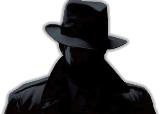I became draft eligible at the end of the Vietnam Conflict. During the last years of the draft, I was in college. The US Draft Board was running lotteries for selection, based on date of birth. And to use a sports acronym, I just barely squeaked into the top twenty, thus I had an immediate 1-A. In just over a week, I received my notice to report for my physical. I was running on the college track team, so I was certain to pass. I was torn by my future decision. Enlisting would mean committing four years of my life, but it would put me in the service of choice, versus two years of assignment to a random branch of service.
My father said, “You could end up chest-deep in a rice paddy, holding your gun over your head, while bullets are zinging past.” Obviously, my father wanted me to continue in his footsteps, entering the US Air Force. You see, when my father was seventeen, he enlisted in the US Air Force shortly after Japan bombed Pearl Harbor.
I took a lot of time and thought hard about the decision. I did not rush my choice. Just over a week before I was to report for my physical, President Nixon called an end to the draft. I can tell you that at that point, I still had not decided whether to enlist.
About two years ago, I decided to write a book, or a series of books, on the Vietnam Conflict. Why? Well, I lived it from the beginning to end. The year of my birth, 1954, was the beginning of Vietnam, and it ended while I was in college. When I was about nine years old, a friend of our family had a son killed in Vietnam. I remember sitting in their home with them, but—typical of a ten year old—it had no impact on me then.
When I was in junior high, the youth of America quickly began to turn against the Vietnam Conflict, but again, I really didn’t understand. Richard Nixon was elected President as I was entering high school, but the war was still too far off to impact me, even when they talked about doing away with college deferments. During the time, the momentum grew against the conflict, and President Nixon discussed ending it. I noticed that, as our soldiers came home, I felt they were not treated properly. And sadly, the silent majority of people sat silent as to how these soldiers were treated. Now, please understand that I am aware there was a great misunderstanding of the two peoples; the Vietnamese people did not understand the American soldier, and many of the American soldiers disrespected the Vietnamese people.
Why, then, did all this hit me so hard two years ago? The Vietnam Wall came to my hometown of Parkersburg, WV. I couldn’t wait to see it. Plus, I wanted to find the name of the friend-of-the-family’s son. I wanted to know why and how he died. Talk about a fateful moment . . . when I asked the men in the tent where I could find his name, a lady who sat writing down names looked up at me and said, “I wanted to marry him!” How startling! That statement alone humanized the book project for me.
I wanted to write a book shedding positive light on the American soldiers in an attempt to honor these men who served over there. These men who were chest-deep in a rice paddy with a gun over their head as the bullets whizzed by. Plus, I wanted to show how the American public changed during the course of the Vietnam Conflict. After extensive research, I decided that the best place to start was at the first point of the conflict—the coup of South Vietnamese President Ngo Dinh Diem. This event had tentacles that were entwined around the entire fabric of the conflict.
What are your experiences with and perceptions of the Vietnam Conflict? If you are younger, or if you remained stateside, has any revelation regarding our soldiers surprised you, as I was startled by that woman’s statement? I would love to hear from you! Where do you think the Vietnam Conflict first started, and why?
